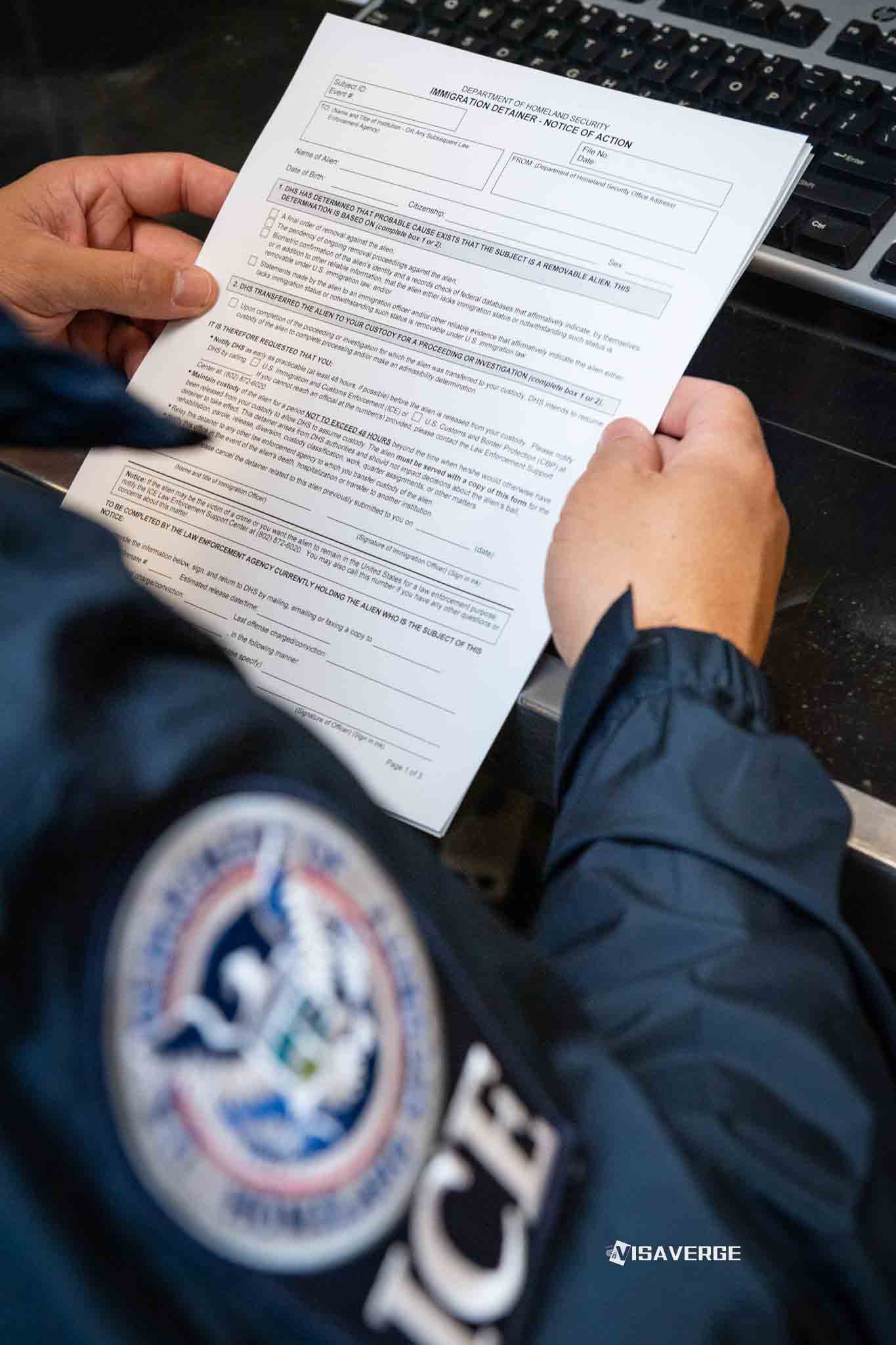As of July 31, 2025, Ohio jails continue to hold large numbers of migrants under contracts with U.S. Immigration and Customs Enforcement, while denying public access to detention records. This ongoing lack of transparency raises serious concerns for families, legal advocates, and immigrant communities across the state.
Sharp Rise in Detention and Limited Transparency

The number of people detained by Immigration and Customs Enforcement (ICE) has surged in 2025. As of July 13, ICE is detaining 56,816 individuals nationwide. Notably, about 43.7%—over 22,000 people—have no criminal record. This marks a steep increase in the detention of migrants without criminal convictions, a trend that has grown under President Trump’s mass deportation campaign.
Ohio plays a key role in this system. The state is home to several county jails and private facilities contracted to hold immigration detainees. These Ohio jails are part of ICE’s broader network, which now includes 155 detention centers across the United States 🇺🇸, up from 107 in January 2025. However, this is still fewer than the 213 facilities used in 2019. Detainees are now more concentrated in fewer, larger centers, with some facilities—like Natchez, Mississippi—holding over 2,000 people each.
Barriers to Public Records and Oversight
Despite the growing number of detainees, Ohio jails have repeatedly denied or delayed requests for detention records. Advocacy groups and legal experts say this lack of access makes it difficult to monitor conditions, ensure due process, and help families locate loved ones. Local jail officials often cite federal contracts or security concerns as reasons for refusing to release information.
The American Immigration Council and nearly 90 legal service organizations have raised formal concerns with ICE leadership. They point to several problems in Ohio jails, including:
- Denial of access to detainee rosters and incident reports
- Delays or refusals in responding to Freedom of Information Act (FOIA) requests
- Lack of transparency about solitary confinement, medical care, and deaths in custody
In June 2025, the American Immigration Council renewed its call for better access to legal counsel and public information. They urged ICE to follow congressional rules and keep in-person bond payment options available.
Official Positions and Stakeholder Views
ICE claims it prioritizes the health, safety, and well-being of detainees and follows national detention standards. However, ICE has not directly answered recent media questions about transparency in Ohio jails. Local jail administrators say they must follow federal privacy laws and contractual obligations, arguing that releasing records could threaten security or violate detainee privacy.
Advocacy groups, including the American Immigration Council, ACLU, and local Ohio immigrant rights coalitions, continue to push for more transparency and public oversight. They stress that access to detention records is vital for legal representation and public accountability.
Congressional committees have included language in the FY2025 reconciliation bill requiring ICE to improve its reporting and transparency. However, actual enforcement and compliance remain inconsistent.
Impact on Detainees and Communities
The denial of detention records in Ohio jails has real consequences for detainees and their families. Many people held in these facilities, including those with no criminal convictions, face long periods of detention and limited access to legal help. Families often struggle to find out where their loved ones are being held or what conditions they face.
This secrecy has increased fear and mistrust among immigrant communities in Ohio. Reports have surfaced of families unable to confirm the whereabouts or well-being of detained relatives. Legal advocates say that without access to records, it is much harder to challenge wrongful detentions or poor treatment.
How to Seek Information and Support
People looking for information about a detained loved one can submit a FOIA request to ICE. However, responses are often slow or incomplete. ICE also offers an online detainee locator tool, but it may not list everyone held in local jails under ICE contracts. For legal help, advocacy groups recommend contacting the American Immigration Council, the ACLU of Ohio, or local immigrant rights organizations.
- FOIA Requests: Submit requests for records directly to ICE. Learn more about the process on the official ICE FOIA page.
- ICE Detainee Locator Tool: Use the ICE Detainee Locator to search for individuals in ICE custody.
- Legal Assistance: Reach out to the American Immigration Council or ACLU of Ohio for guidance and support.
Expert Analysis and Broader Implications
Immigration policy experts warn that the lack of transparency in Ohio jails undermines public trust and due process. They argue that secrecy increases the risk of abuse, medical neglect, and civil rights violations. According to analysis by VisaVerge.com, these barriers make it harder for lawyers and families to monitor conditions and protect detainees’ rights.
ICE and jail officials say that some information must be kept private for security and privacy reasons. Critics, however, believe these justifications are often too broad and used to hide misconduct.
Historical Context and Recent Changes
Ohio’s involvement in ICE detention has grown over the past decade. Local jails have signed contracts with ICE to house federal detainees, bringing in significant revenue. Problems with transparency have been reported since at least 2018, but the issue has become more urgent with the recent rise in detentions and policy changes under President Trump.
The 2025 reconciliation bill includes new rules aimed at increasing ICE transparency, but putting these rules into practice remains a challenge.
Looking Ahead: Possible Solutions and Next Steps
Congress is considering more laws to require public reporting of detention conditions and outcomes. As of July 2025, no new federal laws have been passed specifically to address Ohio’s denial of records. Advocacy groups are expected to keep fighting for greater transparency, possibly through lawsuits if current practices do not change.
Resources for Families and Advocates
- ICE Enforcement and Removal Operations: 500 12th St SW, Washington, DC 20536. Report Crimes: 1-866-DHS-2-ICE.
- American Immigration Council: Offers legal resources and advocacy updates.
- ACLU of Ohio: Provides support for civil rights complaints and legal help.
- ICE Detainee Locator Tool: Find it on the official ICE website.
Key Takeaways
- Ohio jails are detaining many migrants for ICE, with a growing number having no criminal record.
- Denial of detention records and lack of transparency remain major problems, despite congressional rules and advocacy efforts.
- These issues affect due process, legal access, and public oversight, with ongoing campaigns for reform.
- Families and advocates face real barriers in finding detainees and securing legal help, while advocacy groups continue to push for change.
For those affected, staying informed and reaching out to advocacy organizations can help overcome some of these barriers and support ongoing efforts for greater transparency and accountability.
Learn Today
Immigration and Customs Enforcement (ICE) → Federal agency responsible for enforcing immigration laws and detaining unauthorized immigrants in the U.S.
FOIA (Freedom of Information Act) → Law allowing public access to federal agency records, crucial for transparency in detention matters.
Detainee Locator Tool → Online ICE resource to find individuals held in immigration custody across various facilities nationwide.
Detention Records → Official documents listing detainees, incidents, and conditions in detention centers, vital for legal and public scrutiny.
Detention Contract → Agreement between ICE and local jails to hold migrants in custody under immigration enforcement.
This Article in a Nutshell
Ohio jails hold many migrants under ICE contracts with limited transparency. Over 43% detained have no criminal record. Denied public records hinder oversight, legal aid, and family contact. Congressional efforts exist, yet enforcement struggles. Immigration advocates urge improved access, exposing risks of secrecy in detainee treatment and accountability gaps.
— By VisaVerge.com













